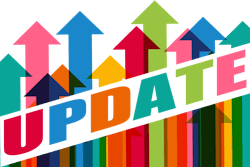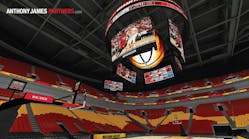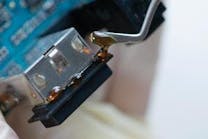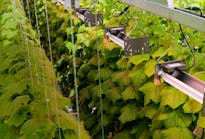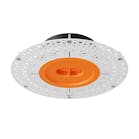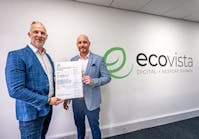DesignLights Consortium Seeks Comments on Draft Updates to Horticultural Lighting Technical Requirements
MEDFORD, MA – Oct. 13, 2020 – In response to member and stakeholder input, the DesignLights Consortium (DLC) today released draft Technical Requirements for LED-based Horticultural Lighting: Version 2.1, providing a route for inclusion on the DLC’s Horticultural Qualified Products List (QPL) for three additional product types. The proposed changes would take effect July 1, 2021.
Also today, the DLC began accepting comments on the draft changes, which would add DC-powered fixtures, externally supplied actively cooled horticultural fixtures, and LED replacement lamps to the DLC’s Horticultural Lighting Program.
“The draft changes we’re announcing today will support QPL qualification for fixtures that enable greater whole facility energy savings by removing excess heat from the grow environment,” DLC Executive Director and CEO Christina Halfpenny said. “In addition, allowing qualification of LED replacements for linear fluorescent and HID lamps will facilitate indoor growers’ transition from incumbent sources that rely heavily on lamp replacements to a new standard reliant on efficient, horticultural fixtures.”
Last month, the DLC finalized V2.0 of its Horticultural Lighting Technical Requirements, an update that continues the industry transition from traditional lighting data and metrics to horticultural-specific lighting data and metrics that best represent horticultural lighting performance. Those changes have an effective date of March 31, 2021.
Proposed V2.1 provisions adding DC-powered and externally-supplied actively-cooled fixtures to the Horticultural Lighting Program provide descriptions of how to test and report on these types of products to ensure performance comparable to products listed under V2.0. The policy defines externally-supplied actively-cooled horticultural fixtures as those in which liquid, often water or a water/glycol solution, flows through input and output ports of each fixture in the system, channeled through a cooling plate or other heat exchanger within the fixture.
Under V2.1, two types of LED replacement lamps would also be considered for QPL eligibility: replacements for linear fluorescent lamps and for mogul-base high intensity discharge (HID) lamps. LED replacement lamps for horticultural applications would need to meet the DLC’s Horticultural V2.0 specifications, as well as requirements of their respective DLC Solid-State Lighting programs.
The DLC’s Horticultural QPL currently contains more than 140 products, with more being reviewed and added regularly. An increasing number of electric utilities rely on the DLC horticultural lighting specification and QPL in the design of energy efficiency programs for commercial cultivators. About a dozen North American utilities now require the use of QPL products as a prerequisite for EE incentives; many others have incorporated the DLC Technical Requirements into their programs while not yet requiring use of products on the QPL. Two states with cannabis-specific energy efficiency regulations offer a compliance pathway that requires use of the DLC’s Horticultural Lighting QPL. To assist licensees in these states, the DLC’s Horticultural Lighting QPL offers a search filter to find products compliant with these regulations more easily.
The DLC will accept comments on draft Technical Requirements for Horticultural Lighting: V2.1 through Friday, November 20 via a comment form emailed to [email protected]. Download the comment form at: http://ec2-52-26-194-35.us-west-2.compute.amazonaws.com/x/d?c=9261862&l=3daac4af-7b66-4eaa-b633-966e1dd4c37f&r=d0e642e9-3d49-4d1c-aaa4-db7da3d4d360
Full details of the draft policy will be provided during an informational webinar at 1 p.m. on Monday, October 26.
About DesignLights Consortium:
The DesignLights Consortium® (DLC) is a non-profit organization whose mission is to achieve energy optimization by enabling controllability with a focus on quality, people, and the environment. The DLC promotes high-quality, energy-efficient lighting products in collaboration with utilities and energy efficiency program members, manufacturers, lighting designers, and federal, state, and local entities. Through these partnerships, the DLC establishes product quality specifications, facilitates thought leadership, and provides information, education, tools and technical expertise.
Contact:
DesignLights Consortium
